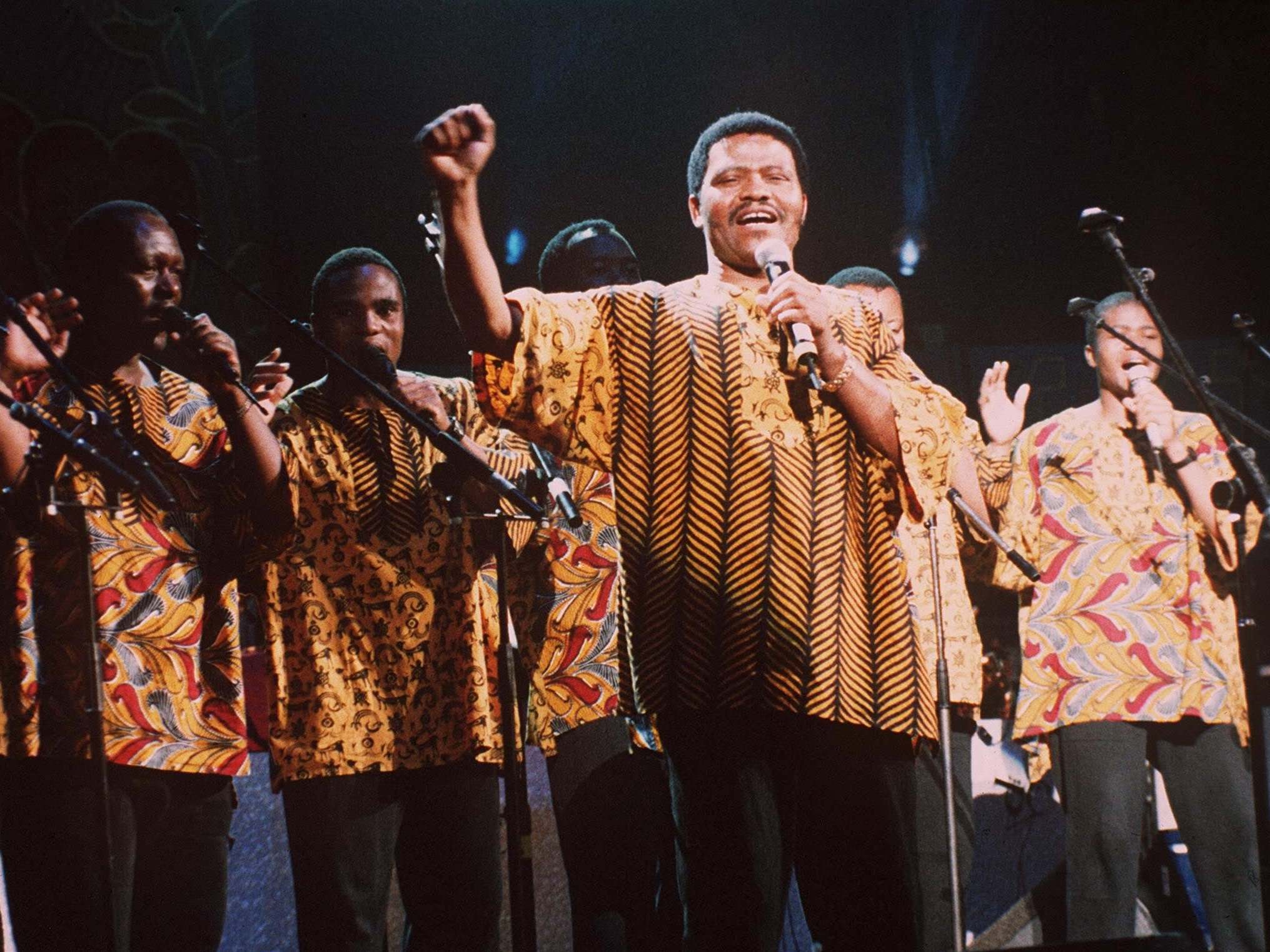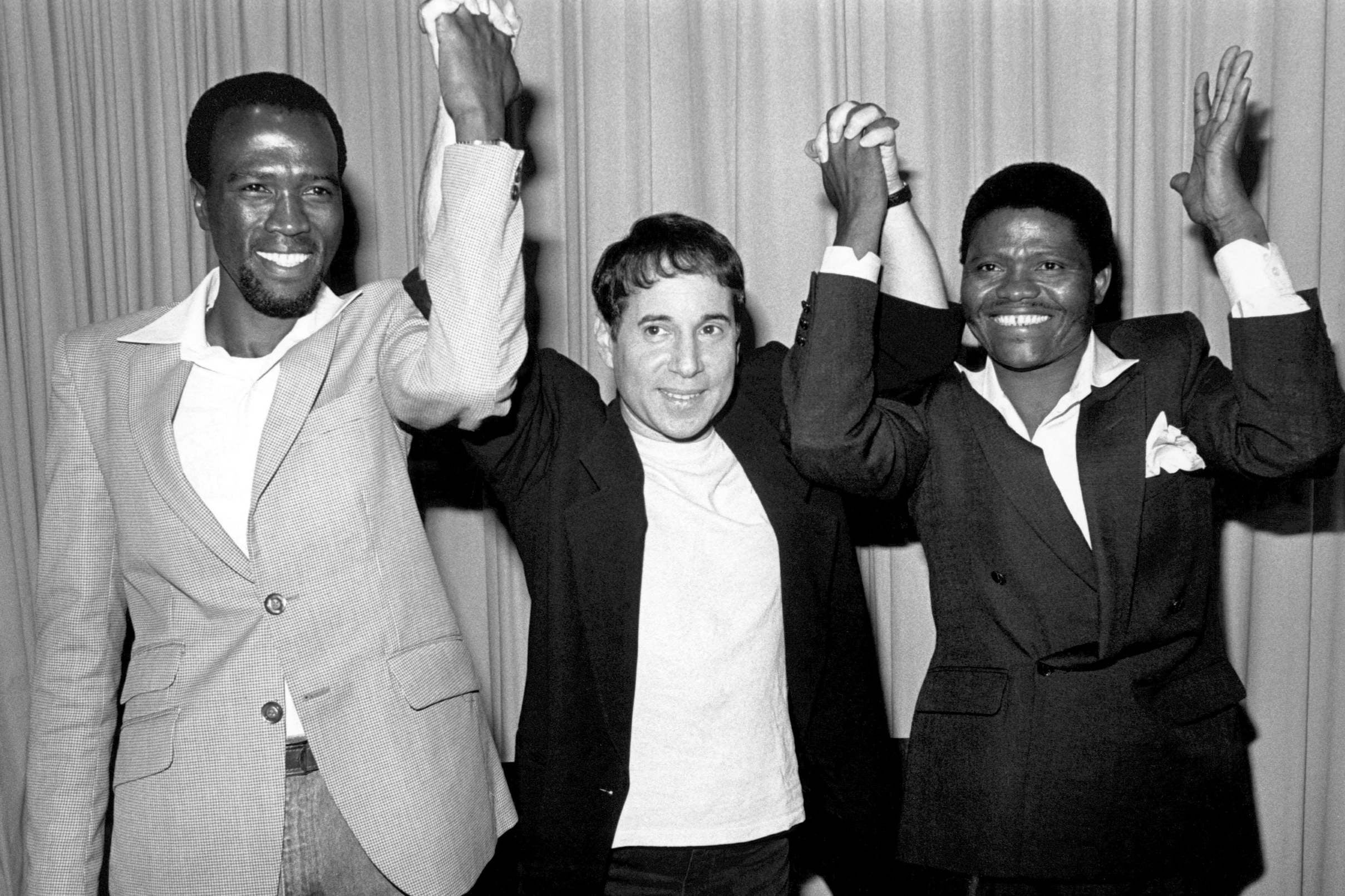Joseph Shabalala: Ladysmith Black Mambazo founder who took the South African choir to international acclaim
His group was one of the driving cultural forces in a country emerging from apartheid

Your support helps us to tell the story
From reproductive rights to climate change to Big Tech, The Independent is on the ground when the story is developing. Whether it's investigating the financials of Elon Musk's pro-Trump PAC or producing our latest documentary, 'The A Word', which shines a light on the American women fighting for reproductive rights, we know how important it is to parse out the facts from the messaging.
At such a critical moment in US history, we need reporters on the ground. Your donation allows us to keep sending journalists to speak to both sides of the story.
The Independent is trusted by Americans across the entire political spectrum. And unlike many other quality news outlets, we choose not to lock Americans out of our reporting and analysis with paywalls. We believe quality journalism should be available to everyone, paid for by those who can afford it.
Your support makes all the difference.Back in the 1980s few would have predicted that a Zulu vocal choir would break out of apartheid South Africa to win a vast international audience, but Ladysmith Black Mambazo achieved just this. The choir’s leader, Joseph Shabalala, who has died aged 78, knew that his legacy would live on: Ladysmith Black Mambazo have continued to tour the world since Shabalala retired six years ago and four of his sons are members of the current ensemble.
Ladysmith Black Mambazo first achieved international attention when the American singer and songwriter Paul Simon employed them on his hugely successful 1986 album Graceland and subsequent world tour. Paradoxically, because Simon visited South Africa to meet Shabalala (and other African musicians) – so breaking the cultural boycott – he faced vocal criticism from anti-apartheid campaigners. Shabalala himself said that, by breaking the boycott, Simon had helped black South Africans in their struggle.
Joseph Shabalala was born Bhekizizwe Joseph Siphatimandla Mxoveni Mshengu Bigboy Shabalala, the eldest of Joseph and Namandla’s eight children. He grew up on a farm outside the town of Ladysmith (in the province of KwaZulu-Natal). His father’s death when he was 12 forced Shabalala to leave school and go to work on the farm.
Shifting to Durban in 1958 to work in factories, Shabalala began singing in choirs and vocal groups. In 1960 he formed a choir and they began singing isicathamiya music – the Zulu acapella tradition – at local weddings and entering competitions. By 1964 Shabalala’s choir was considered the best in the region and, after a series of dreams, he came upon the name of Ladysmith Black Mambazo.
The choir, who performed athletic dance moves as they sang, gained great popularity among Zulus and, as word spread, they began attracting interest from white South Africans. Signed to Gallo Records in 1972, their debut album Amabutho achieved gold sales – the first black South African artists ever to achieve such.
Such was Ladysmith’s success the apartheid government sent them to West Germany in 1981 and 1982 to perform at folk music festivals. Paul Simon, upon hearing tapes of South African Zulu music in 1984, felt inspired to travel to Johannesburg. There he met the local musicians and, via a series of loose rehearsals, began developing the songs that would become Graceland.
Simon was especially impressed by Shabalala, who flew to London to participate in Graceland’s recording sessions, and received publishing credits on two of its songs (“Diamonds on the Soles of Her Shoes” and “Homeless”).

Graceland’s phenomenal success (selling some 16 million copies) rejuvenated Simon’s career and he toured the world with Ladysmith Black Mambazo, then produced their 1987 album Shaka Zulu on Warner Brothers. This album won the choir the first of their five Grammy awards and they quickly became internationally famous – appearing in Michael Jackson’s Moonwalker film, accompanying Nelson Mandela to Oslo when he was presented with the Nobel Peace Prize, singing with Dolly Parton, appearing on the soundtrack of The Lion King and providing the vocal accompaniment to a series of Heinz baked beans TV advertisements in the UK (which helped to sell more than 100,000 copies of a compilation CD). Over the decades Shabalala softened the choir’s sound, ensuring they sang in English rather than isiZulu, yet always ensuring they delivered superb performances.
As well as success and acclaim, he experienced tragedy: two of his brothers and another choir member were murdered and, in 2002, he was wounded and his wife of 30 years was killed outside their home by a masked gunman. His son Nkosinathi was charged with orchestrating the murder but acquitted.
Shabalala recovered from the shooting and continued to lead Ladysmith Black Mambazo as a recording and touring choir until in 2014 he announced his retirement. His son Thamsanqa took over leadership.
In retirement Shabalala promoted the Ladysmith Black Mambazo Foundation which aimed to teach Zulu children about their musical heritage.
He is survived by his second wife, Thokozile Maduna, five sons and a daughter.
Joseph Shabalala, musician, born 28 August 1941, died 11 February 2020
Join our commenting forum
Join thought-provoking conversations, follow other Independent readers and see their replies
Comments